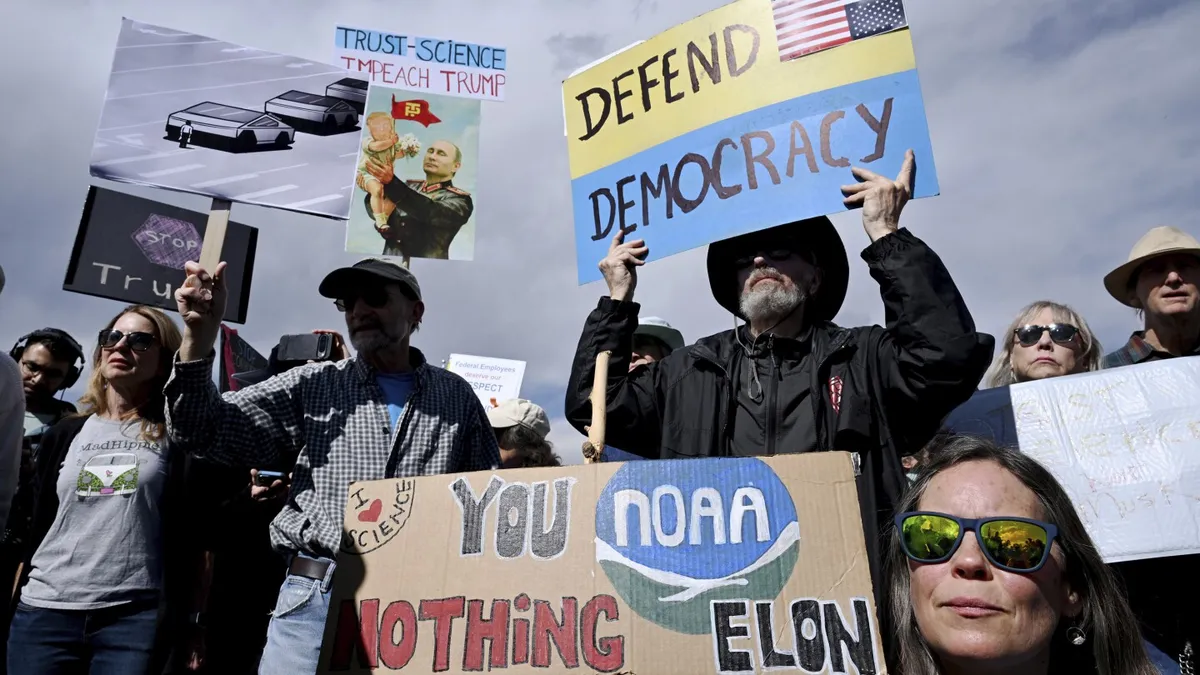
The Trump administration is embarking on another round of substantial job cuts, affecting more than 1,000 positions at the National Oceanic and Atmospheric Administration (NOAA). According to four individuals familiar with the situation, the agency has begun plans to lay off approximately 10% of its workforce, which currently stands at about 10,290 employees.
On Tuesday, NOAA management communicated plans to implement these layoffs, prompting managers to submit names of positions to be cut to the agency's headquarters. This information is set to be forwarded to NOAA's parent agency, the Department of Commerce, on Wednesday. The layoffs are part of a broader trend, with three former senior NOAA officials — including two former political appointees from the Biden administration — confirming the number of impending job reductions.
While many Americans are familiar with NOAA for its daily weather forecasts, the agency has a far-reaching impact on public safety. NOAA's responsibilities extend to monitoring severe weather events such as hurricanes, tornadoes, floods, and tsunamis. Additionally, the agency manages the nation’s fisheries, operates marine sanctuaries, provides navigation information for maritime activities, and conducts vital observations on climate change and oceanic conditions. NOAA also plays a crucial role in disaster response, including oil spills, and offers warnings about natural phenomena like avalanches and space weather that could potentially disrupt the electrical grid.
The impending job cuts are set against a backdrop of previous reductions initiated during the Trump administration, which have already led to the elimination of nearly all new hires last month. Following this latest round of layoffs, NOAA will have reduced its workforce by approximately 25% since President Donald Trump took office in January. Former NOAA Administrator Rick Spinrad criticized these cuts, stating, “This is not government efficiency; it is the first step toward eradication. There is no way to make these kinds of cuts without removing or significantly compromising mission capabilities.”
NOAA spokeswoman Monica Allen indicated that the agency does not comment on internal personnel matters; however, she assured that NOAA will continue to fulfill its public safety mission, providing essential weather information, forecasts, and warnings. Alarmingly, due to staffing shortages, NOAA has already ceased operations of some critical weather balloons in Albany, New York, and Gray, Maine, which are essential for accurate weather forecasting.
This development comes at a crucial time, as a severe storm system is anticipated to sweep through the central and southern regions of the United States. Meteorologists predict a multi-day outbreak featuring strong tornadoes, hail, and damaging winds. Former NOAA chief scientist Craig McLean expressed concern about the impact of the layoffs, warning, “Weather forecasts will worsen, and people are going to start seeing this very quickly.” Furthermore, he noted that these cuts could limit the catch for commercial fishermen and hinder ongoing research efforts critical for improving weather forecasting and monitoring environmental changes.
McLean lamented that the U.S. is witnessing a decline in its status as a technological leader. He contrasted the nation’s historic achievements, such as landing on the moon, with the present challenges faced in delivering reliable weather forecasts. “People are silently watching the United States decline as a technological leader,” he stated, emphasizing that the consequences of these job cuts extend far beyond NOAA's operations.